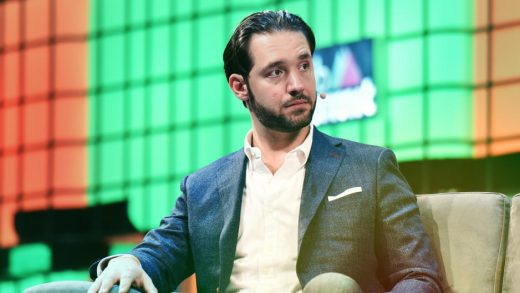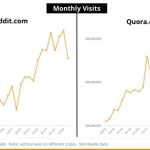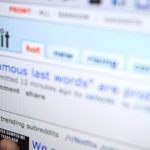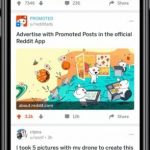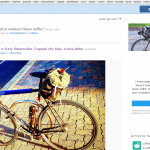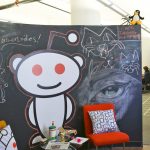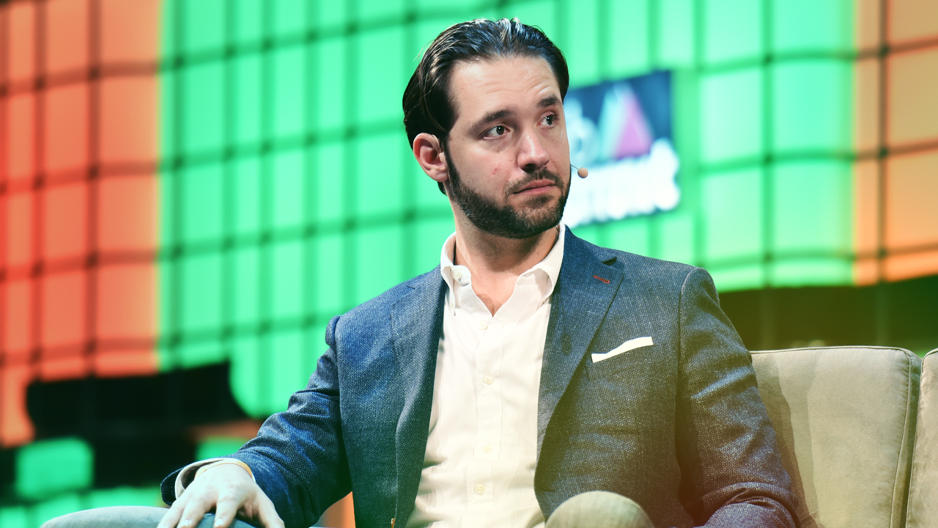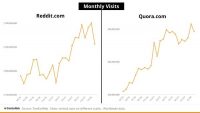When A Founder Boomerangs Back: Alexis Ohanian On Returning To Reddit
Recent studies have suggested that both employers and employees are more open to the idea of boomeranging, but rarely do startup founders get the opportunity to return to the helm of a successful company they’ve created and walked away from.
That’s exactly what happened to Alexis Ohanian, who cofounded Reddit with Steve Huffman in 2005. Their social media company was acquired by Condé Nast one year later. Ohanian, named one of Fast Company‘s Most Creative People this year, left Reddit in 2009 to launch a number of new ventures, become a partner at Y Combinator, and a net neutrality activist. He returned to Reddit in 2015.
Fast Company caught up with Ohanian at the Web Summit conference in Lisbon, Portugal, to discuss what it was like to boomerang to a company he cofounded a decade prior, whether he ever regretted leaving in the first place, and why he decided to return.
Returning to Reddit after it was acquired might imply some seller’s remorse. Do you still think it was the right move to leave when you did?
We started Reddit right out of college. We were pretty naive, but we managed to build something that people really liked, and it grew. When we found ourselves 16 months later in a position to sell it for life-changing money, it felt like we were getting away with something. So there was a discussion, but it wasn’t a very long discussion, because it seemed to be too good to be true.
While I don’t regret it at all, you could certainly make the case that we sold early, given that Reddit continued to grow after we left.
Why did you decide to return?
Because it was the opportunity of a lifetime. For five or six years Steve [Huffman] and I were gone and the site didn’t really change. Usually in business if you don’t evolve you’re going to have a tough time. In tech, you’re especially going to have a tough time. This miracle that Reddit kept growing in spite of no change showed us that there was clearly something here, and we owed it to Reddit to get it right and let it live up to its full potential.
At any point did you feel like the website and its reputation were at stake, or on the brink of collapse? Was there a sense that it needed to be saved?
I don’t want to be too hyperbolic about it. In spite of a lot of things, the site kept growing. Growth is the core engine, especially for a consumer platform like Reddit. But there was a strong sense that it was not living up to its full potential, and we felt like Reddit was never going to live up to its full potential unless we boomeranged.
Did the Reddit community itself play a role in that decision? Did you miss having that user base behind you?
A little bit, but I also got regular exposure to it, because when I would travel I would say like, ‘Hey R/Birmingham, I’m here in town, lets do a meet-up,’ or I’d just crash a meet-up a community was hosting.
I still felt very physically connected to users because I’ve spent more face time with Reddit users than I think anyone over the last decade. But I didn’t wake up and go to bed thinking about Reddit anymore. That was a little weird because that was our baby, that was the thing we woke up to and went to bed thinking about every night for years.
The part I missed were all of those micro-interactions with Redditers. I would hear, ‘I fell in love on Reddit’ or ‘I got my pilot’s license thanks to Reddit,’ or ‘Reddit saved my life.’ All of those stories over the years built up to this ever-present voice of Reddit that is in my head when I’m thinking about all the different ways it’s affected people, and how we can now bring that to even more people.
How are you bringing it to more people now?
We didn’t even have a mobile site. Last year people were still visiting the desktop website on a mobile browser. They were pinching and zooming—that’s a terrible experience—and yet a majority of our traffic was on mobile. That was such a strong signal and such a clear imperative that we need to get this right because I want more people to fall in love, I want more people to get help getting their pilot’s license, or whatever [on Reddit].
What was the most difficult challenge you faced when you returned?
The big challenge was taking a culture of inactivity and hesitation and turning it on its head. Getting people to realize that it’s okay to evolve this product and it’s no longer okay to just be content with the status quo. It’s weird to talk about a tech company that way, and not some 100-year-old company that’s stuck in its ways, but that’s what five years did. We’ve shipped more [code] in the last couple of quarters than Reddit did in the past six years. That’s bonkers. Resetting a company culture like that is not easy.
Do you feel that time away from the company was ultimately beneficial? Would you recommend boomeranging to other executives, assuming they’re in a position to do so?
Absolutely. It’s kind of like we learned how to be executives on someone else’s dime.
A lot of it comes down to how you exit, and in our case we left on great terms. For an executive who is a few years in, vested, has experience, but feels like the next opportunity at that company isn’t right, or going to be there soon enough, it’s a chance for her to go spend some time leveling up. But at the same time [it’s an opportunity to be] broadening and hopefully getting exposure to things outside of their comfort zone, and then coming back eventually with more experience.
If you can swing it, I would offer the same advice, which is talk to your manager or your executive team about it, and just be frank.
You mentioned a need to overhaul the culture that existed when you returned, but were there any elements of Reddit’s early years you wanted to keep intact?
The biggest one I would say is the underdog nature of Reddit. When we learned about Digg—which at the time was a Silicon Valley-funded startup with at least $1 million in funding, darling of the press, the founder was a celebrity—we were just two ‘randos’ out of the University of Virginia with $12,000. We very much felt like the underdog until we eclipsed Digg, and that part is important. Today we look at Facebook, and we’re very much an underdog there. That part of the mentality and the culture is an important thing to preserve.
This interview has been edited and condensed for clarity.
Fast Company , Read Full Story
(13)

